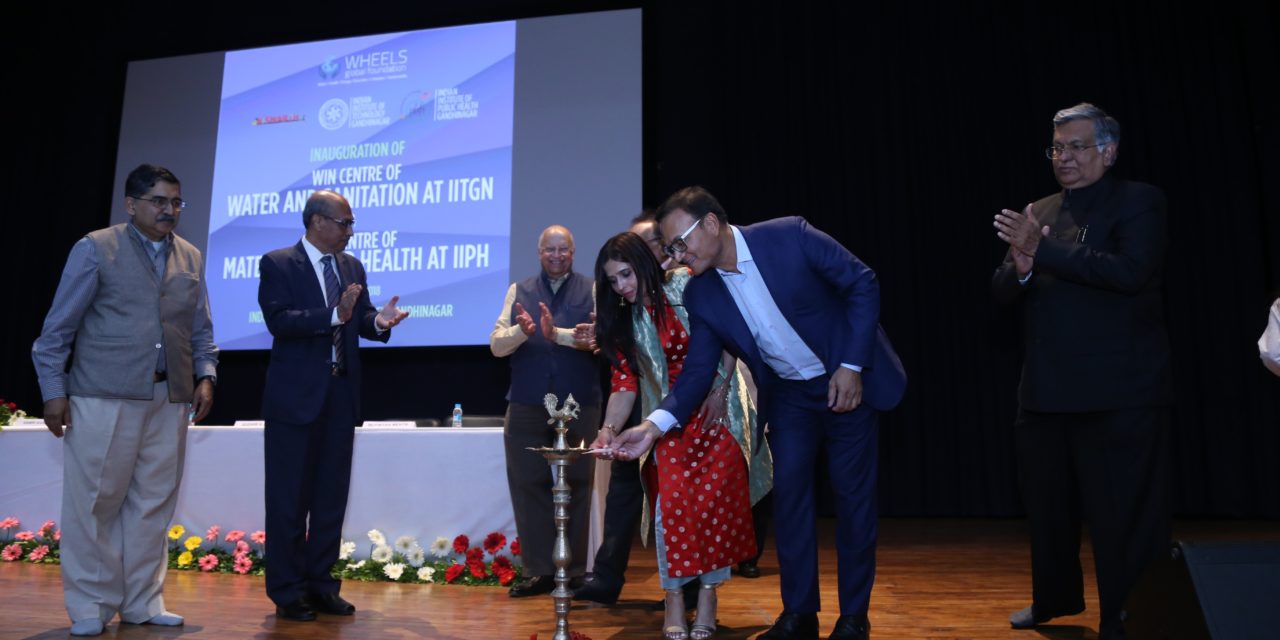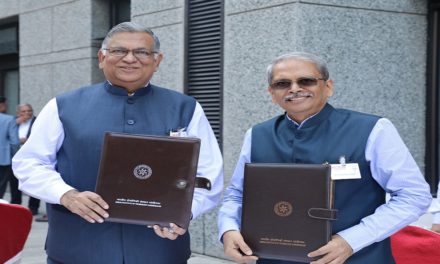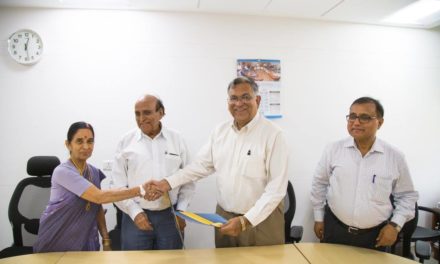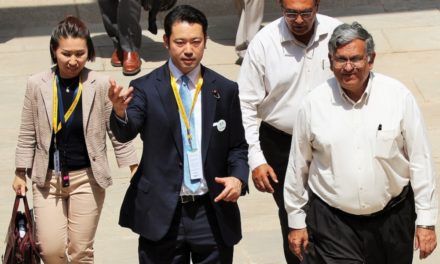A Centre of Water & Sanitation was inaugurated on January 30 at the institute. Alongside, Indian Institute of Public Health – Gandhinagar (IIPHG) inaugurated a Centre of Maternal & Child Health. Prof Samir Barua, former director, IIMA – chief guest of the event – announced the centres during a ceremony at IITGN. The centres are supported by US-based WHEELS Global Foundation (WGF). WGF’s primary base in India – WHEELS India Niswarth (WIN) Foundation – will work for supporting and facilitating breakthrough research in the areas of water & sanitation and maternal & child healthcare in developing countries.
Dignitaries from India and overseas attended the inaugural ceremony. Mr Chirag Patel, US-based philanthropist and co-CEO & chairman, Amneal Pharmaceuticals; Mr Rajat Gupta, chairman of WHEELS; Dr Thakor Patel from The Sevak Foundation; Mr Ruyintan (Ron) Mehta, co-director for the “water” track of WGF; Dr Dileep Mavalankar, director, IIPHG; and Prof Sudhir K Jain, director, IITGN were present on the occasion.
The Centre for Water & Sanitation at IIT Gandhinagar will focus on developing new, cost-effective ways to treat water, reduce water contamination in rivers, and work to improve policies related to drinking water. It will work towards finding the most cost-effective methods to bring clean drinking water to rural communities, and will work with international governing bodies to form public-private partnerships. Reduction of costs for delivering potable water by applying technologies such as reverse osmosis and desalination will be key areas in focus.
Sharing his delight over hosting the Centre, Professor Jain said, “We are very happy to host the Centre on Water and Sanitation that will look at real-world problems of developing countries and find solutions. We are thankful that Mr Chirag Patel and his family chose to address such critical concerns to invest in, and I am even happier that WGF chose IITGN Research Park as base for WHEELS India Niswarth Foundation. The Centre will not just provide solutions to critical problems of water and sanitation, but will also provide opportunities to our faculty and students to work on real-life problems.”
The Centre for Maternal & Child Healthcare will house a research lab which will focus on priorities such as prevention, diagnoses, using data analytics and the use of women’s SHGs to deliver messages. It will support a field-testing site to analyse public health interventions in a community setting. Additionally, the MCH program will serve as a hub to link resources for improving health outcomes for women and children and serve as an evidence-based testing facility to advise policymakers. Dr Mavalankar remarked on the occasion, “This Centre will bring transformation via use of technology and management the benefits will reach the mothers and children of Gujarat, India and world.”





